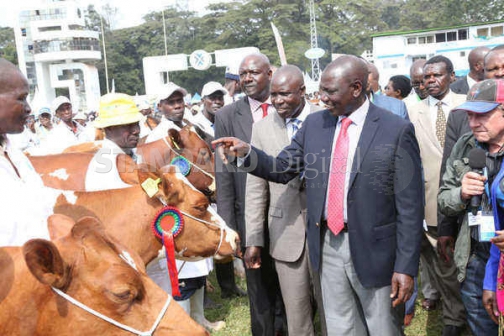×
The Standard e-Paper
Smart Minds Choose Us

The Government will work hand in hand with dairy farmers to boost their earnings, Deputy President William Ruto has said.
“It is not possible to talk about the economy without talking about farmers. We will work very closely with farmers across the country and with stakeholders in the dairy and livestock sector to improve not just their earnings, but also quality of products,” the DP said.